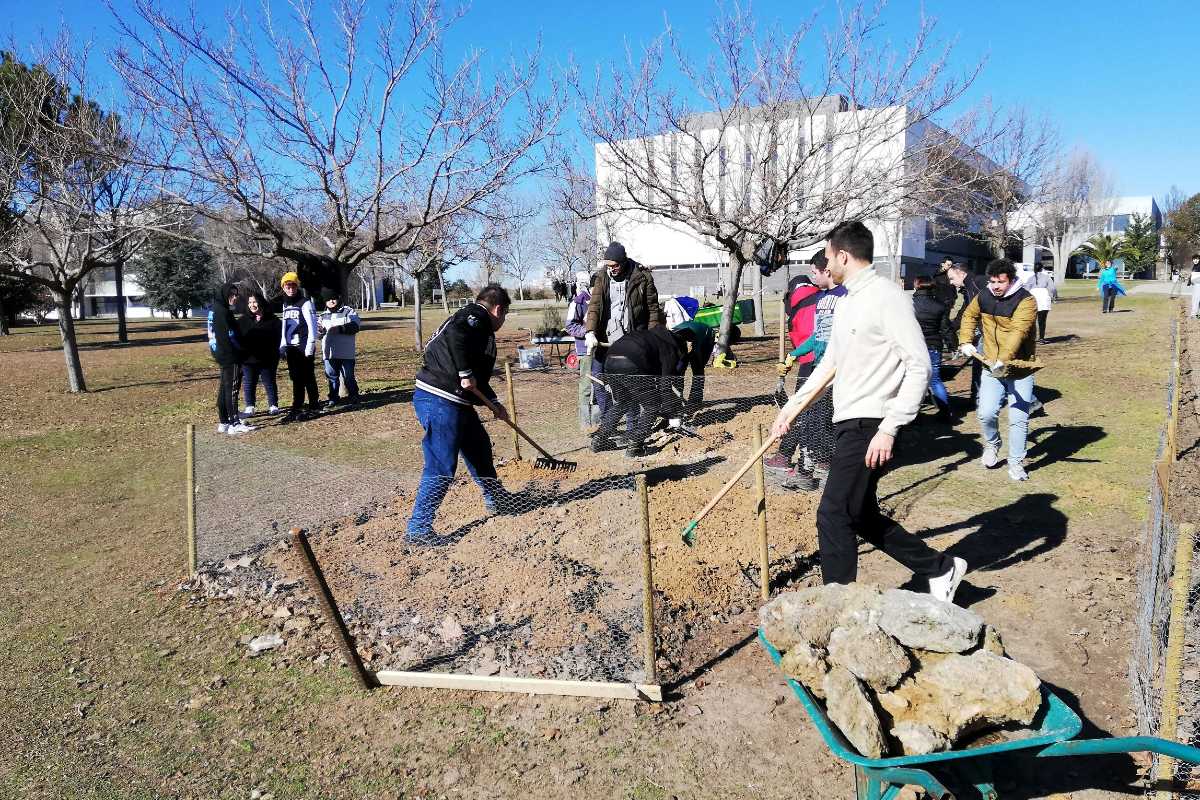Nora Fernandez Fernandez
Last week, several students from the ESCET Biology and Environmental Sciences branch planted more than 80 species of Mediterranean scrub and gypsum areas on the Móstoles campus, creating the URJC Mediterranean Garden.
This activity is generated within a teaching innovation project called GIMAsBIO and several researchers from the biodiversity area and the Green Office participate in it. The innovation project includes another 10 initiatives, all of them in line with the work of the Green Office to promote biodiversity on campus, according to its coordinator, Consuelo Iriarte.
The objective of this initiative is "to set up a biodiversity observatory, a learning and research infrastructure, and to do it with the students of various ESCET degrees to learn through active learning methodologies," says Iriarte.
Two ecosystems have been reproduced in the recently planted botanical garden: one of Mediterranean scrub and the other of gypsum material. Professors Isabel Martínez and Ana Sánchez are the main promoters of the initiative, through the Iberian Ecosystems subject of the Biology degree.
“They proposed in the classroom that the students generate the information to create the garden and that they design the project to be able to recreate these ecosystems; choose the species, their distribution in this space and the level of presence”, says Iriarte.
This project has been carried out thanks to the coordinated efforts of the GIMAsBIO Group, Green Office, Maintenance Service, Technical Office, Campus Management and the CULTIVE laboratory, "in addition to the collaboration of iMIDRA, an organization of the Community of Madrid, which He has given us native plants so that the species are really from where they should be”, adds the director of the Green Office.
Students from the Inclusive University project have also been present at the plantation, a title for experts in urban green solutions, which the URJC is running together with the Fundación Juan XXIII.
As the Green Office coordinator has pointed out, “this is the first stone of a project that we want to see grow. At the moment we have generated the space and we are going to give it visibility to involve more students”. The resource, created by and for the students, "intends to raise awareness of the importance of Biodiversity both in the university community and in the public".




